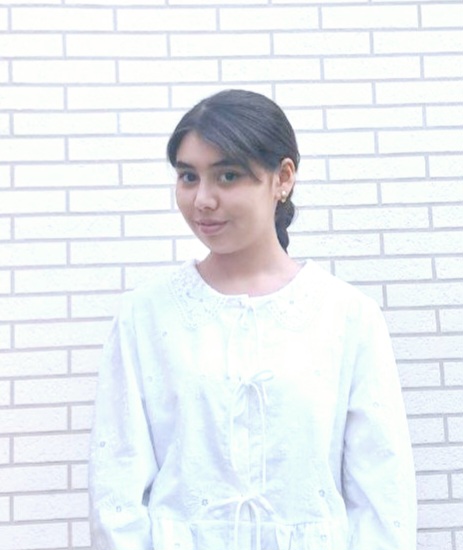First, from contributor Jacques Fleury, an announcement of a new book! “Immortal Lines of Poetry” by Sourav Sarkar and Jacques Fleury

A collaboration between myself and internationally renowned poet Sourav Sarkar of India. The book presents us both as “2 Poets of the Common Era Literature Period” (a term Sarkar claims to have coined himself on Oct. 24, 2021 and is celebrated worldwide on its founding date yearly) and allows the reader an opportunity to “sample” our poetic styles and substance. It is at times a supple staccato or eroticism, at times mesmerizingly musical of humanism, at times visceral to its soul core but eventually reaches a crescendo to volcanic eruption of literary passion, hope and inspiration for our seemingly crumbling humanity. Here is a sample of one of MY poems from the book. Hope you check it out on Amazon. Merci beaucoup!
This month’s issue focuses on what’s going on inside of all of us, and how that shapes who we are. We’re going Beneath the Surface.

Stella Kwon’s paintings explore dreams, childhood, fantasy, and the interiority needed for a creative life. Jacques Fleury’s sample poem from his new book Immortal Lines of Poetry looks into dreams and internal inspiration. Debabrata Maji’s poem traces his heart’s inner journey. Damon Hubbs tracks the odds and ends running through his mind while watching competitive tennis. Annabel Kim’s artwork explores and celebrates human and natural creativity. Ma Yongbo evokes the change of seasons, nature, and mortality.
Mark Young renders maps and nature into works of art in his ‘geographies.’ J.K. Durick speaks to intellectual experiences – the news, books, museums – and how we communicate ourselves to ourselves. Jasmina Saidova honors an inspirational teacher as Abdirashidova Ozoda explores possibilities for digital technology in early childhood education. Eshmamatova Shabbona traces the history and evolution of Uzbek literature and Munira Xolmirzayeva traces the history of Russian writing.
Eva Petropoulou Lianou praises the delicate elegance of Lily Swarn’s new poetry collection A Drop of Cosmos. Uralova Gulmira highlights themes of personal experience and motherhood in the patriotic writings of Uzbek poet Saida Zunnunova. Sayani Mukherjee reflects on being driven towards poetry in a full and changing world. Dr. Rasmiyya Sabir writes of romantic love, poetic inspiration, and the irrepressible drive to be heard.
Jakhongir Nomozov interviews poet Rustam Bekhrudi, who intends to capture and convey the resilient Turkish spirit in his writing. Mesfakus Salahin speaks to human psychology and the drive to live amid the allure of death. Mahbub Alam describes a night of discomfort due to mosquitoes, which he endures by thinking of people who have it much worse. Abdisattorova Hurshida’s short story highlights the dignity and self-determination and patience of the hardworking rural poor in Uzbekistan, even when facing death.

Hanen Marouani probes our internal emotional life with tenderness. Bill Tope uncovers the veil of a past sixth grade classroom where the students and teacher are full of inner and outer turmoil. Alan Catlin continues his surreal examination of the physical manifestations of work anxiety as Elbekova Nilufar warns of the danger to our eyes and psyches posed by Internet addiction. Emeniano Somoza Jr. reflects on what we lose by lessening the ups and downs of our emotional nature. Donia Sahab’s poetry probes the psychological torment and confusion Dr. Alaa Basheer alludes to in his painting. J.J. Campbell navigates loneliness with his trademark wit and cynicism.
Joana L.J. Milovanovic’s words bear witness to the psychological and physical damage domestic abusers inflict. Mykyta Ryzhykh’s characters find themselves subsumed by the crushing violence of a metaphorical “leviathan.” Alex S. Johnson reflects on his friendship with Runaways band member and visionary Kari Lee Krome and how the music industry elevates and chews people up.
Jakhongir Nomozov’s speaker reasserts himself after intense seasons of emotional pain and rejection. Soumen Roy highlights the importance of respect and patience in true love. Munisa Rustamova expresses gratitude for her mother’s constant love in a harsh world full of fake people. Alex S. Johnson and Kandy Fontaine assert their confidence in their way of living and loving and show how power is expressed through service and care, not abuse. Liderqiz demonstrates this ethic of service through a profile of Uzbek Information Service leader Dilbar Ashilbayeva.

Andela Bunos speaks of the universal human grief of lost love. Kristy Raines’ poetry expresses commitment to a romantic relationship despite being separated. Lola Ijbrater outlines the rise and fall of a romance through a series of flowers. Ken Gosse describes heartbreak through clever poems with increasing numbers of lines. Eva Petropoulou’s lines address intimate love and the beauty of forgiveness. Annamurodov Umarbek reflects on coming of age after losing his father.
Journalist Giorgos Pratzikos and literary figure Eva Petropoulou Lianou interview Greek writer Fay Rempelou about how she intends to inspire peace, creativity, and humanity through her poetry. Nilufar Mo’ydinova presents a thoughtful exploration of artificial intelligence’s potential and how to mindfully develop it for the benefit of human creativity. Taghrid Bou Merhi traces the moral ascent of humankind, as societies developed respect for life, human rights, and gender equity. Omonova Sevinch highlights the importance of educating women and girls to uplift society. Graciela Noemi Villaverde points out the power of icons and commemorations of peace to interrupt the hostility that leads to war.
Giorgos Pratzikos interviews actor and children’s author Zisis Papaioanou on his craft, his artistic vision, his inspirations in Christ and Aristotle, and desire for Greeks to have more neighborly concern and look out for each other.

Taylor Dibbert reflects on the impression Americans make while traveling abroad. Doug Hawley and Bill Tope present a humorous tale of unintended interplanetary cooperation. Duane Vorhees’ poetry deals with our humanity, the roles we play in life and who we choose to become to each other.
Abdel Iatif Moubarak’s words express solitude and the hopes and dreams of individuals and communities in an uncertain world. Abigail George reviews Nadine AuCoin’s horror novel Tucked Inn, a tale of survival and good overcoming evil. Justin Faisal, a Rohingya refugee from Myanmar and advocate for his fellow refugees, writes of his inner journey of perseverance and finding beauty in life. Sharifova Saidaxon reflects on similar sentiments, finding forgiveness and acceptance through her faith.
We hope this issue inspires you to dig into your inner psyche and uncover strength and reach for your hopes and dreams.






